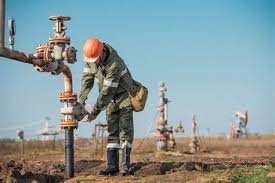Uganda’s Finance Minister, Matia Kasaija, says the country’s economy is expected to grow by at least 7% in the fiscal year starting July 2025. This optimistic projection comes at a time when Uganda is preparing to begin crude oil production, a development expected to turn the East African country into one of the region’s fastest-growing economies.
Kasaija made the announcement on Thursday during his national budget speech, where he highlighted that the oil sector will play a big role in driving Uganda’s growth. He added that new revenue streams, backed by solid international support and a stable monetary environment, will position Uganda for economic transformation.
The International Monetary Fund (IMF) has backed the projection, forecasting that oil revenues could push Uganda’s economic growth into double digits in the coming years—especially after production begins from Lake Albert in western Uganda.
Oil Sector Development
The expected economic boost is tied to Uganda’s long-awaited crude oil project. Commercial oil drilling is set to start in late 2025 or early 2026 from the Lake Albert basin. The region holds an estimated 1.4 billion barrels of recoverable oil reserves.
To transport this oil, Uganda and its neighbour Tanzania are working on the East African Crude Oil Pipeline (EACOP), a $10 billion mega-project that will stretch over 1,400 kilometres from Uganda to the Tanzanian port of Tanga. Although construction has faced delays due to funding and environmental concerns, the project remains on track to start operations in 2025.
When fully operational, oil production is expected to reach up to 240,000 barrels per day. The IMF says this will greatly improve Uganda’s GDP, increase government revenue, and stabilise the country’s current account.
World Bank Resumes Funding
Adding to the positive outlook, the World Bank has resumed financial support to Uganda nearly two years after suspending funding. The suspension was triggered by Uganda’s controversial anti-LGBTQ+ legislation, which had drawn international criticism.
Now, the resumption of funding signals renewed confidence in Uganda’s governance and development agenda. Analysts say the World Bank’s return could unlock new investments in energy, infrastructure, education, and health, which are critical to Uganda’s Vision 2040 development plan.
Monetary Stability and Inflation
Uganda’s central bank has kept its lending rate steady at 9.75% to manage inflation and maintain macroeconomic stability. As of September 2024, the inflation rate stood at 3.0%—well below the Bank of Uganda’s 5% target.
The stable inflation rate, combined with a strong local currency and low borrowing costs, is helping small businesses and investors plan better. The central bank says it will continue to monitor inflation and adjust its policies to balance price control with economic growth.
Challenges and Concerns
Despite the progress, Uganda faces several hurdles. The oil pipeline and refinery projects have experienced repeated delays due to funding shortages and opposition from environmental groups. Activists argue that the EACOP poses risks to wildlife and displaces communities, especially those near protected areas.
Also, construction delays may push back oil production timelines, which could affect revenue forecasts and investor confidence. The government is under pressure to fast-track key infrastructure projects while addressing environmental and human rights concerns.
Policy Direction and Economic Diversification
To ensure long-term growth, the Ugandan government says it will continue to diversify its economy beyond oil. Priority sectors include agriculture, ICT, tourism, manufacturing, and financial services.
Minister Kasaija emphasized that Uganda is also investing in industrial parks, value addition, and youth empowerment to reduce unemployment and create more job opportunities for its growing population.
According to him, “Oil will give us a big push, but our economy must remain balanced and inclusive. We must prepare for tomorrow by building skills, supporting innovation, and attracting private sector investments.”
Conclusion
Uganda is entering a new economic phase as oil production nears reality and international partners like the World Bank resume support. While infrastructure delays and global scrutiny remain concerns, the government’s growth agenda, backed by monetary stability and strategic investments, is laying the foundation for long-term prosperity.
As Uganda moves closer to becoming an oil-producing country, all eyes will be on how it manages this opportunity to lift millions out of poverty and cement its place as one of Africa’s rising economies.
